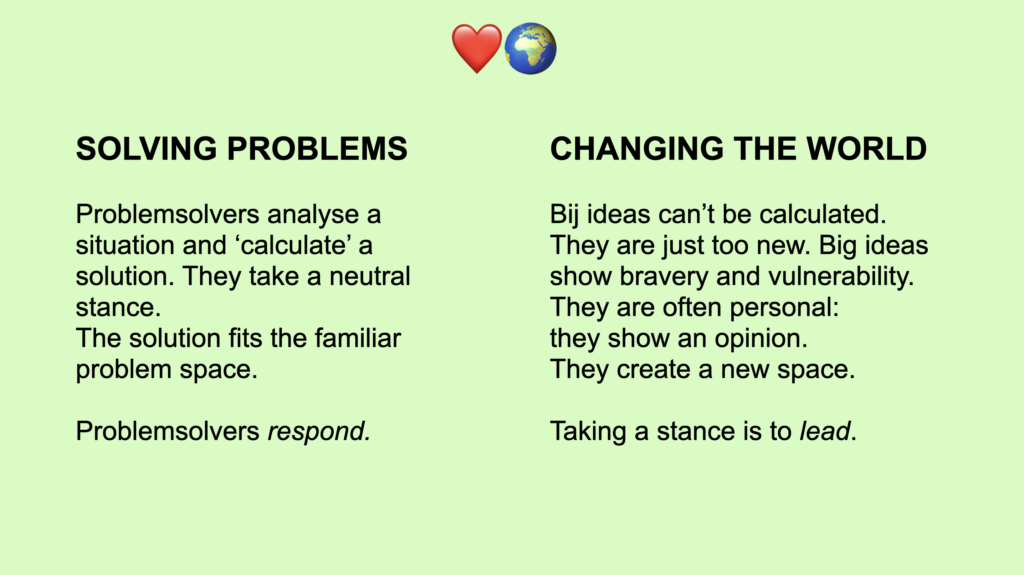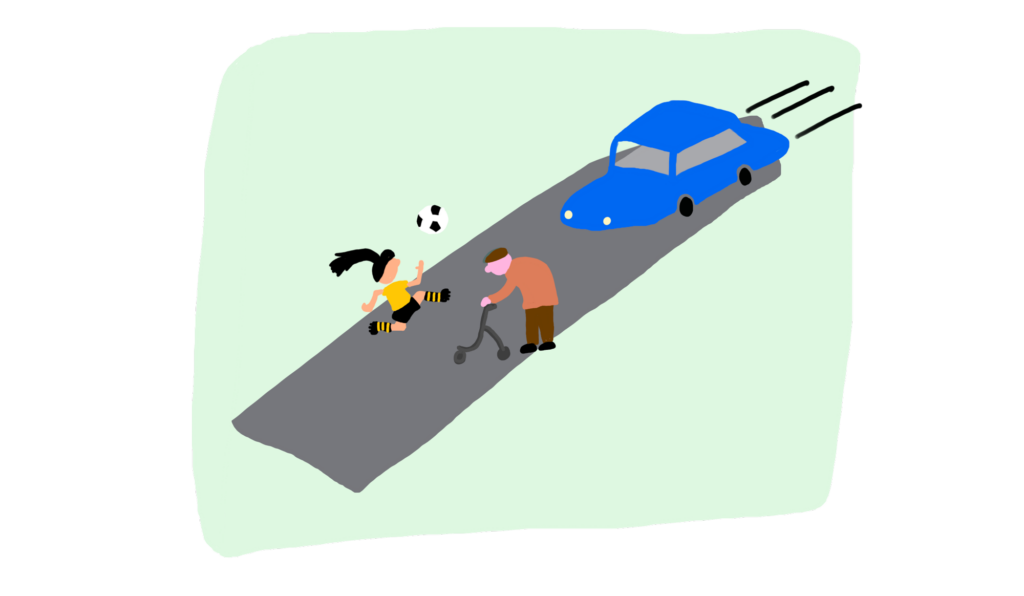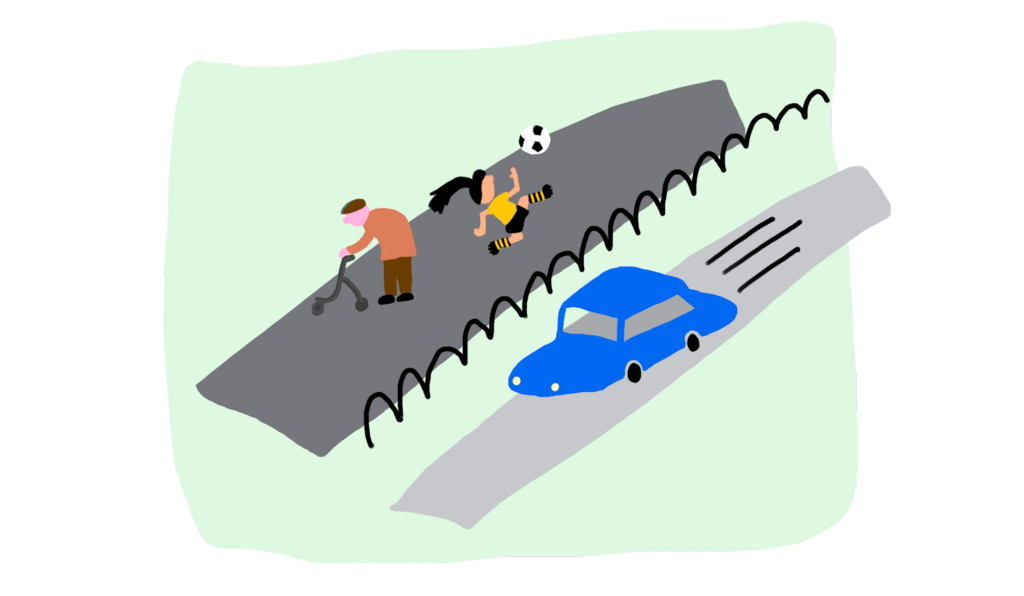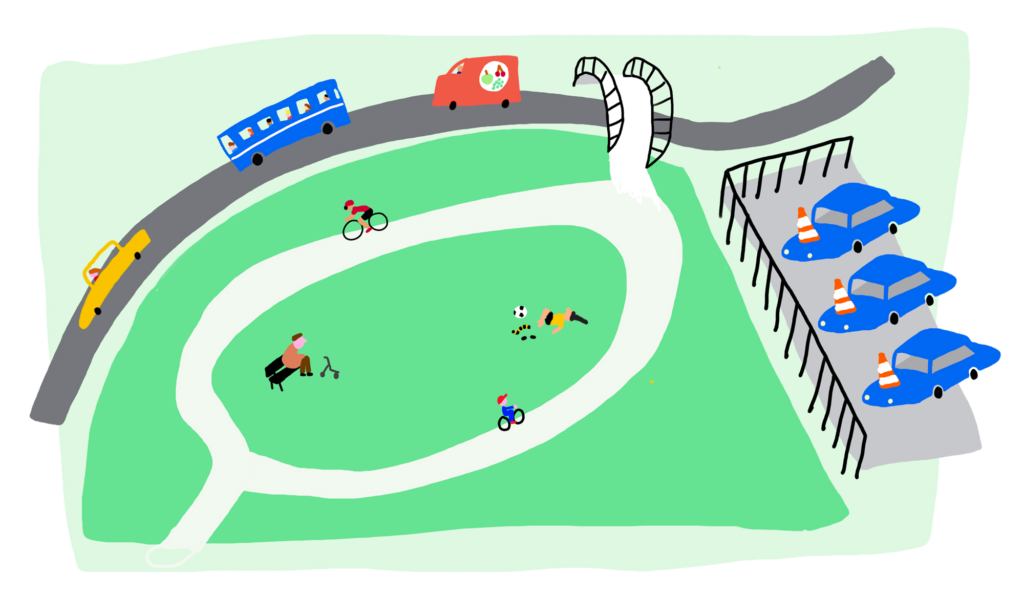Short walkthrough of my keynote at the Public Spaces Conference 2024.

You can watch my presentation on the PublicSpaces website: https://conference.publicspaces.net/session/astrid-poot
You can read a short summery below.
Self portrait
When I was in art school one of my professors told me that everything you make is a self portrait. I’ve come to the belief that everything we do is also part of our self portraits. I want to review the state of tech and our attitude towards tech from the self portrait perspective. How do we look?
Future is coming…
The tech sector has us locked in in their future is coming narrative. It is happening, it is washing over us, we’d better jump on board before it is too late. AI experts warn us: We are approaching the inevitable near future where all our content is being generated by software.
When there is something new, we pay attention. And the tech sector has a new tech delicacy for us every single day. (Look what we can do!) Law and order is responding fast, but their fast not the the tech bro’s (m/v/x) fast. And the people swallow what we are being fed. (There is an app for that!)

For the love of the world
Hannah Arendt’s thinking centers around the concept of love for the world. In our actions we should show love for past generations and for those of the future. Love for the people and worlds we know and the ones we don’t. We should celebrate differences, and never loose the ability to start anew.

In our modern society we are used to solving problems. We believe society (and the world) is man made. We are the designers, the fixers.
Arendt is critical towards problem solvers:

Changing the world takes bravery, personal connection and passion. Cold calculation alone will get us nowhere. We need to act.

Example: the case of the self driving cars
Do we accept the situation and solve it in a well balanced and smart manner?


Or do we take it further and remove the problem from our cities? Do we challenge the narrative of the need for self driving cars? To stand up against the cars is to act. (The Self-Driving Cars Wearing a Cone of Shame)

More on Arendt and punk: the DIY ethics handbook
We all love ancient cities
Architect Christopher Alexander explains our love for old cities because they are examples of traditional spaces where a man feels at home. They are built by the people who are close or centered to that place. They are built with respect for what already existed and on a human scale.
I wonder if we can take the same approach in building and assessing tech. Make it friendly, on a human scale. Built by people who will (want to) use the service themselves.
Remember: tech is not evolution!
Because: tech is made. It is done. A deliberate act. It is not a natural evolving process that we move with. Therefore its direction can be changed.

For the love of the world
I like to assess tech like this: as users we should always pay attention to the motives of the makers.
- For the love of the world is always good.
- And of course I applaud crazy makers that make tech for tech sake.
- But when the money becomes a factor the free creativity is often compromised and the targets shift.

One step further
And I like to check products to the Universal Declaration of Human Rights. One of the most beautiful and important documents ever written. We connect it to war and piece, and the learnings from WW2. But it can also be your conscience when designing and building services. (With that in mind, you mind want to check articles 12, 17, 28, 24.)
Like Christopher Alexander said: look for friendly, on a human scale.
It is up to you
As people we need to take a stance, we need to act. We should become the loudest voice in the tech narrative. But in a way that suits us. And that is different for everyone.
To carry with you: the DIY ethics handbook
Know yourself: how good are you?
- How good are you?
- How did you become you?
- What virtues and values are important to you?
- Can you be as good as you want in your personal life?
- Can you be as good as you want in your professional life?
- What prevents you from doing good?
- What stimulates you in doing good?
- What do you need?
- What will you pass on?
- (Is your love for the world visible in your actions?)
More on you: the DIY ethics handbook
Consider what your influence can be:

More on your influence: the DIY ethics handbook
And be angry!
Ask yourself these questions:
- What are you angry about?
- What should change?
- What can you personally do?
- What will be different because you took action?
More: read Anger as a force for good
And finally: be a punk citizen
Punk 2024:
- Rules and habits can be discussed
- The establishment should always be challenged
- We are DIY
- We are engaged activists (silent or loud)
- We cherish the truth
More on punk: the DIY ethics handbook
How are we doing on our self-portraits now?
Thank you Public Spaces for having me. I learnt a lot. Love <3
